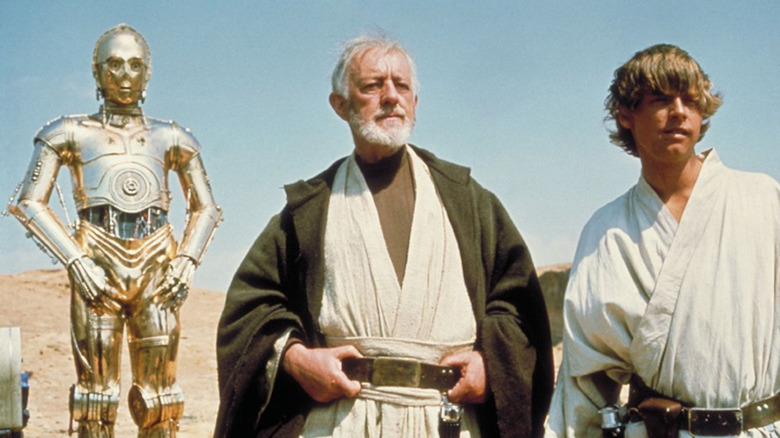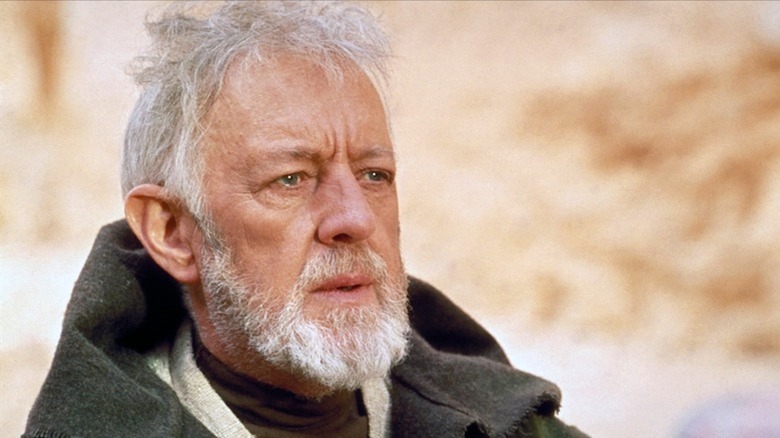The Idea For The Jedi In Star Wars Came From A Controversial 'Non-Fiction' Book
Even if you're just a casual "Star Wars" fan, you probably know that George Lucas drew significant inspiration for his sprawling space saga from the samurai films of Akira Kurosawa ("The Hidden Fortress" in particular) and the hero's journey monomyth as explicated by Joseph Campbell. The ideas and tropes contained in these works were combined to form the sturdiest of foundations, one that now supports an ever-expanding collection of TV shows, cartoons, video games, books, and so on.
What you might not know is that when Lucas was building this universe in the early 1970s, he also drew influence from one of the era's most notorious con men.
For as long as people have been into spiritualism and religion, there have always been opportunists seeking to exploit this genuine (if often naive) yearning for financial gain. Barnstorming revivalists and faith healers have made a fortune off the gullibility of the masses, while more ambitious bulls****ers have occasionally managed to pull one over on more well-read individuals. Indeed, a close look at Lucas' "Star Wars" outline suggests he was taken in by the latter kind of scam.
The Don Juan of Star Wars
According to J.W. Rinzler's authoritative "The Making of Star Wars," Lucas was apparently moved to take the Jedi in a more mystical direction after reading Carlos Castaneda's "The Teachings of Don Juan: A Yaqui Way of Knowledge." Castaneda's account of his apprenticeship with Don Juan Matus, a Yaqui Indian sorcerer located in Sonora, Mexico, was a publishing phenomenon in the late '60s and early '70s. Castaneda's peyote-fueled explorations, under the guidance of Don Juan, encouraged readers to get in touch with the spiritual/natural world.
So when Lucas name checks "Don Juan" in the outline when describing Obi-Wan Kenobi's use of The Force, there can be no doubt that he's citing Castaneda's shape-shifting shaman.
It turns out Don Juan was as much a work of fiction as Kenobi. Some of the shaman's observations were directly lifted from well-known scholars like Ludwig Wittgenstein and C.S. Lewis. As for Don Juan's alleged tutelage, academics noted that Castaneda's book skimped on details to such a ludicrous degree that it was clear the entire experience was fiction.
As William W. Kelly, the chair of Yale University's anthropology department, noted, "I doubt you'll find an anthropologist of my generation who regards Castaneda as anything but a clever con man. It was a hoax, and surely Don Juan never existed as anything like the figure of his books."
Castaneda's books are still in print, which is a shame given the damage they've done to a frequently misrepresented culture. That they might've inspired The Force is an interesting pop-cultural footnote, one that's significantly less ominous than Lucas' appropriation of Len Riefenstahl's "The Triumph of the Will" for his grouping of uniformed soldiers.

